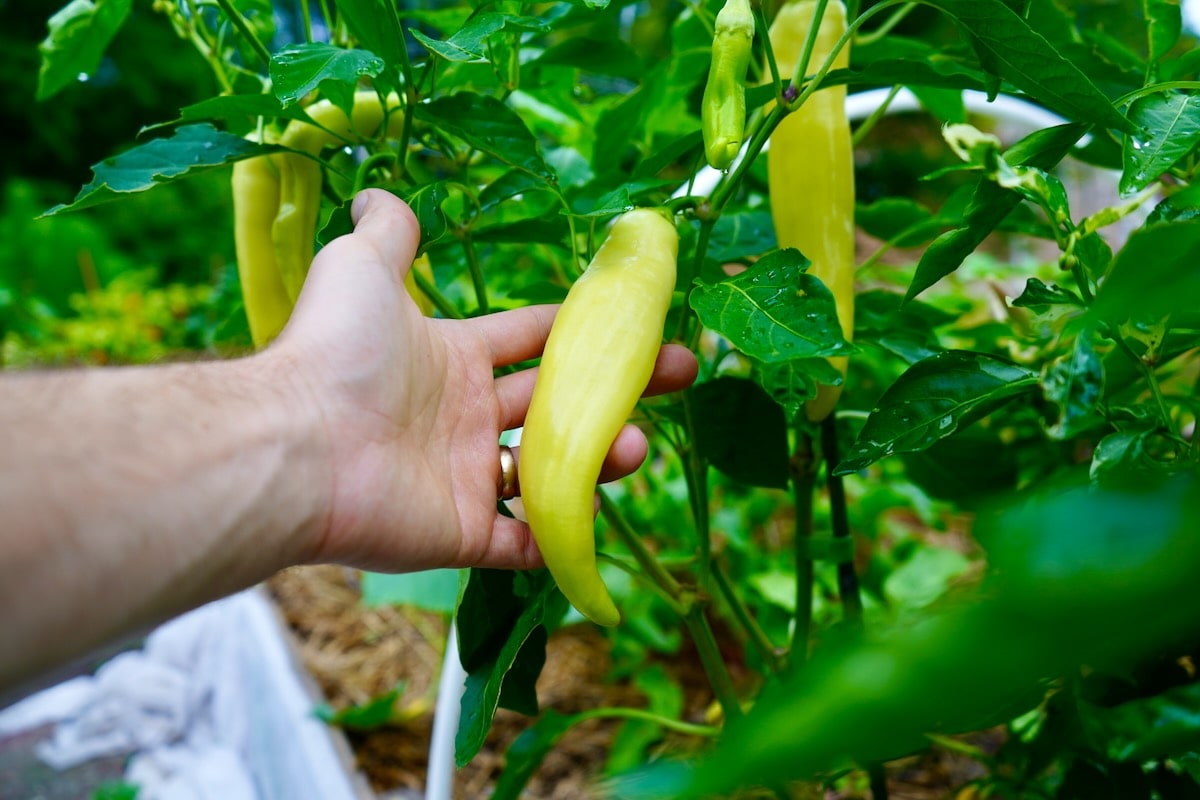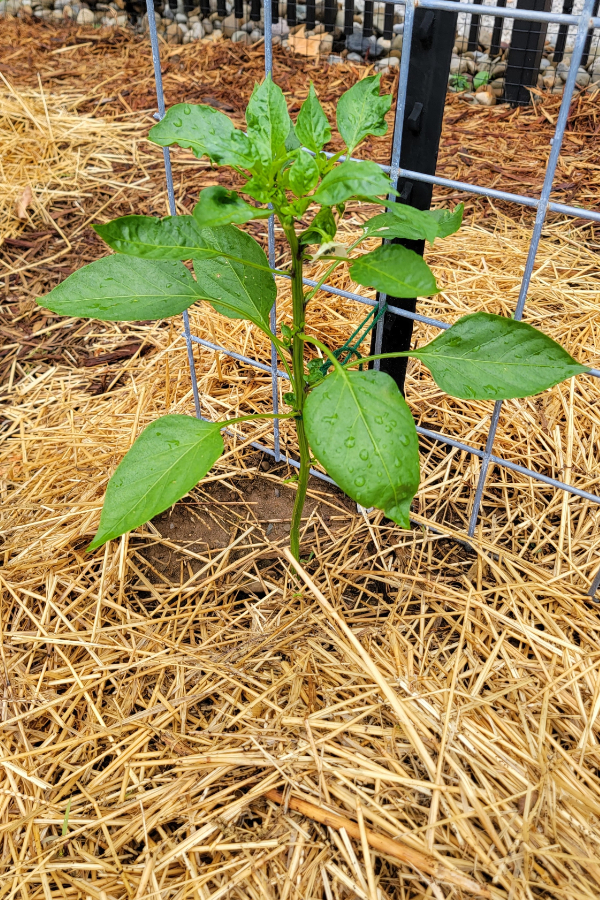Organic Vs. Synthetic Fertilizers: Which Is Best for Supporting Healthy Pepper Plants?
In the realm of nurturing healthy pepper plants, the option in between synthetic and natural plant foods stands as an essential decision with far-reaching implications. While both choices purpose to supply important nutrients to sustain plant development, the nuances of their influence on the dirt, plant health and wellness, and the atmosphere spark a debate that mirrors throughout the gardening neighborhood. Understanding the distinctive advantages and prospective mistakes of each plant food type is crucial for pepper growers seeking to optimize their returns while maintaining an eco-conscious and lasting approach.
Advantages of Organic Fertilizers
Organic fertilizers use a lasting and environmentally-friendly strategy to beneficial pepper plants, supplying important nutrients without using artificial chemicals. These all-natural plant foods are stemmed from natural sources such as garden compost, manure, bone dish, and seaweed, promoting soil health and wellness and biodiversity. Unlike artificial plant foods, organic alternatives launch nutrients slowly, guaranteeing a constant and balanced supply for pepper plants to thrive.
One substantial advantage of organic fertilizers is their ability to enhance soil framework and water retention. By improving soil wellness, natural fertilizers promote advantageous microbial activity, which aids in nutrient uptake by pepper plants. Additionally, organic fertilizers minimize the danger of chemical run-off, securing water resources from contamination and securing the atmosphere.
In addition, natural plant foods add to long-term dirt fertility by advertising the development of useful dirt microorganisms. These microorganisms assist damage down raw material, releasing nutrients in a form that is easily accessible to pepper plants. best fertilizers for peppers. By fostering a healthy soil ecosystem, natural plant foods support lasting pepper farming practices that benefit both plants and the environment
Disadvantages of Artificial Fertilizers
Synthetic fertilizers, in comparison to their natural counterparts, position various drawbacks when utilized to nurture pepper plants, affecting both plant health and wellness and ecological sustainability. One major downside of synthetic fertilizers is their propensity to seep nutrients from the soil quickly. This quick leaching can result in nutrition imbalances in the dirt, triggering plants to suffer from deficiencies or toxicities. Furthermore, artificial plant foods can damage beneficial dirt organisms, such as earthworms and helpful bacteria, disrupting the soil ecosystem's equilibrium.
In addition, the overuse of synthetic plant foods can add to water contamination. Excess plant foods not taken in by plants can remove into water bodies, resulting in eutrophication, where algae flowers diminish oxygen levels in the water, hurting marine life. Additionally, synthetic fertilizers are typically stemmed from non-renewable sources, such as fossil fuels, adding to carbon exhausts and ecological deterioration throughout their manufacturing.
Nutrient Absorption Comparison
When contrasting natural and synthetic fertilizers in terms of nutrient absorption, organic fertilizers have the benefit of offering an extra balanced and slow-release source of nutrients. Organic fertilizers include a selection of macro and micronutrients that are not just valuable for the plants however likewise promote healthy dirt microbial activity, which assists in nutrient uptake.
Moreover, organic plant foods enhance soil framework and water retention ability, enabling pepper plants to accessibility nutrients much more effectively. This improved soil quality assists in root growth, allowing much better nutrient absorption. Synthetic fertilizers, although at first increasing plant development as a result of their high nutrient focus, might impede long-term nutrient absorption by degrading dirt wellness in time.
Ecological Impact Considerations

On the other hand, synthetic have a peek at this site plant foods, although frequently more right away offered and focused to plants, can have destructive impacts on the setting if not applied correctly (best fertilizers for peppers). Their production calls for high energy inputs, bring about greenhouse gas discharges and contributing to climate modification. Moreover, the overflow of excess artificial plant foods can infect water sources, resulting in eutrophication and hurting marine environments.
Best Fertilizer Practices for Peppers
To attain this, it is navigate to this site vital to adhere to best plant food methods tailored to the details requirements of pepper plants. One vital technique is to carry out a dirt test before applying any kind of plant foods.
One more vital practice is to fertilize pepper plants at the right time. Usually, peppers profit from obtaining plant food at planting and afterwards again when they start to flower. Over-fertilizing can result in nutrition imbalances and damage the plants, so it is vital to comply with suggested application prices.
Furthermore, picking a balanced fertilizer with an NPK proportion that suits pepper plants' demands is essential. Organic plant foods, such as garden compost or manure, can be excellent choices as they release nutrients gradually and boost soil structure gradually. Nevertheless, synthetic plant foods can supply a fast nutrient increase when required. Eventually, integrating organic and synthetic fertilizers deliberately can assist nurture healthy and balanced pepper plants while reducing environmental impact.
Final Thought

Organic plant foods provide an environmentally-friendly and sustainable technique to nourishing pepper plants, providing vital nutrients without the usage of synthetic chemicals. Unlike artificial plant foods, natural choices launch nutrients gradually, making sure a balanced and right here constant supply for pepper plants to grow.
Synthetic plant foods, in comparison to their organic counterparts, pose different drawbacks when used to nourish pepper plants, impacting both plant wellness and environmental sustainability. When comparing synthetic and organic plant foods in terms of nutrient absorption, natural fertilizers have the advantage of providing an extra balanced and slow-release resource of nutrients.Furthermore, organic plant foods improve soil framework and water retention capacity, permitting pepper plants to accessibility nutrients much more effectively.